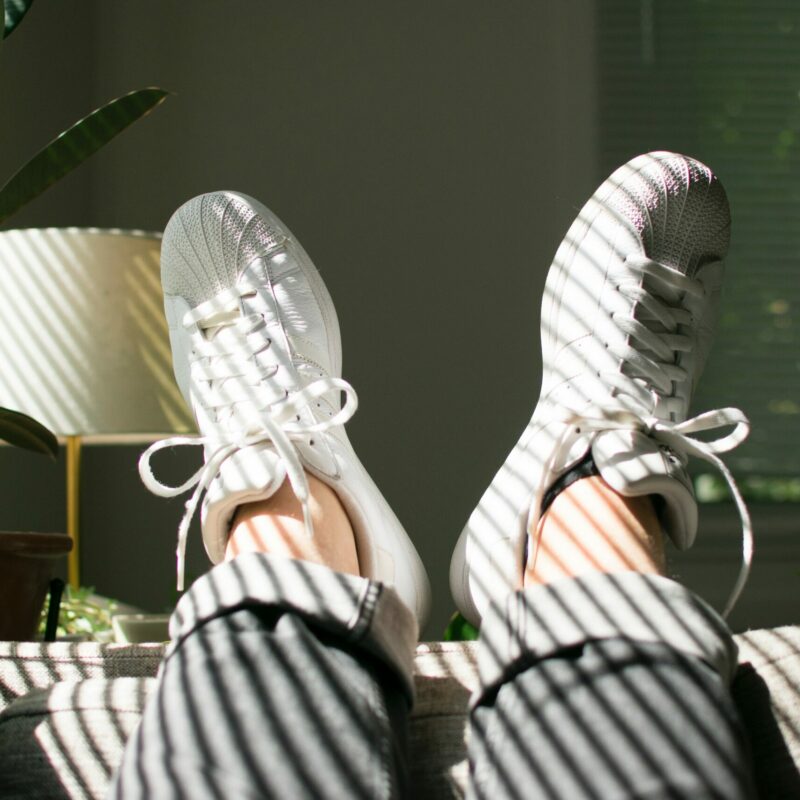Latest NewsHow to Keep your Mind Healthy During Lockdown

Due to the pandemic, people are being forced to live in isolation, and by rightly adhering to lockdown rules, our mental health may also inadvertently be at risk as a result.
In response to this, and to acknowledge a positive state of mind, let’s look at the symptoms that may reveal a downturn in mental health and review our top tips to keeping the mind healthy and resilient during this extraordinary period.
The symptoms of mental health deterioration can include increased alcohol or drug use, excessive bingeing on social media or TV, excessive gaming, weight loss or weight gain, binge eating, anxiety, excessive worry, tiredness, a lack of motivation, sadness, and boredom.

Some also struggle with loneliness, others; with being crammed into a small space and having no privacy. Whatever the situation you are in, here are our 5 top tips for things that you could do to help alleviate these symptoms whilst encouraging physical, mental, and emotional stimulation:
- Physical activity
Physical stimulation is the backbone of mental wellbeing. Your body, mind and muscles need regular and moderate stimulation every day as It is important to keep muscle tone, encourage circulation and maintain strength in your bones. Getting your heart rate higher (even breaking a sweat) is supported by many health researchers and recommended in order to keep well. Activities like cleaning, gardening, walking, running, cycling can really help you in this period, and help elevate your overall mood and sense of achievement of hitting your daily goals.
- Social interaction
Social interaction can be just a phone call or even better – video-calling platforms such as Facetime, Zoom, Microsoft Teams, and WhatsApp, where the screen can be ‘mirrored’ through a bigger screen such as your laptop, tablet and television, can all make social interaction a more fun and exciting way to interact with friends and loved ones, whilst also helping to reduce the strain on your eyes. Meeting friends or neighbours outdoors (whilst adhering to lockdown guidelines), is also an ideal way to add variety to your day.
- “Me time”
“Me time” is also considered an important factor in mental health wellbeing – “me time” is something that provides personal space and makes you smile – (doing something for yourself, uninterrupted). It gives you the satisfying feeling of freedom, enjoyment and calm or excitement – it recharges your batteries and allows you to focus on one task that you enjoy and enriches you.
Find a hobby that makes you smile – something that you don’t have to do but like to do. Watching television or scrolling through social media are not considered as healthy hobbies, and in some cases, social media can be detrimental to your mental health and self-esteem, so find something else, if you enjoy playing video games, then do that; but be mindful of the time you are spending gaming. The best hobbies are those that give you a sense of satisfaction, pleasure, or sense of achievement. If you don’t have anything like this now, then try some new things to see whether there is anything you may like, explore your positive mind.
- Work
Even though you may have more time for work, don’t merge your work time with your leisure time. If you have a family and you juggle work and raising children (home schooling) at the same time, then consider all these activities as “work”. Make sure you have a clear area for work, so mentally you feel different when not working, this can be done by ensuring you separate the area of the desk or a table for where you work versus where you relax and have some quiet time.
- Fuel Your Body
Eat breakfast, lunch (and/or dinner) to ensure you are adequately fuelled to keep you energised. If your day is less active, then just keep an eye on your portion sizes to keep the weight down, but make sure to eat a nutritionally balanced diet to avoid vitamin and mineral deficits. If you find yourself over or under eating, there could be an underlying mental health reason for this, if you need help to understand what this could be, please contact us; as we may be able to help you with getting your food intake under control again.
Ensuring a regular sleeping routine is also vital. Having regular times to go to sleep to avoid “social jetlag” is a common problem people struggle with particularly as we are on lockdown. Social Jetlag is a term for having similar symptoms as when travelling between different time zones, it is used to describe a phenomenon in cities where people go out after work and socialise into the late hours every day. The difference is “bedtime” is interfering with your inner body clock; also known as the circadian rhythm. In order to help your body, try to keep your bedtime routine and mealtimes regular.
If you would like to find out more, book a consultation today.
Sign up below to hear more from us!
Not sure what you’re looking for?
Arrange a chat with our specialist team
Awards, Accreditations & Partners
Our therapists are accredited with the following UK and EU boards:
We are also able to accept clients who are insured by AXA, WPA and BUPA
*Please enquire for all other insurance companies*





